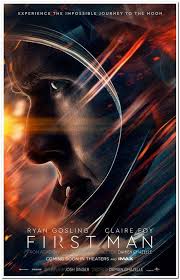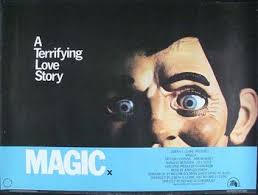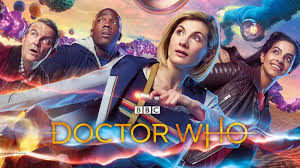First Man is the biopic about Neil Armstrong, the first person to step onto the surface of the moon. Biopics are a particularly difficult beast, real life rarely fits into a conventional three act structure and people are complex amalgamations of conflicting impulses, drives, and justifications and as such the genre often turns to reduction and simplification to craft a satisfying narrative and First Man is no  different in that regard. Rather than attempt to cover the entirety of film focuses on a period of about ten years covering Armstrong’s from X-15 pilot to the Apollo 11 lunar mission. An additional challenge in this story is that Armstrong was a famously reserved man who disliked the glare of public life and rarely spoke of himself. Ryan Gossling does an excellent job of portraying a man who spoke little but yet it is clear that he not only thinks but also feels quite deeply. Damien Chazelle understands the power of subjectivity. While there a few glamour shots of the craft in the vast void of space the majority of the scene are shot from a point of view restricted to the interiors, putting the audiences in the squarely into the emotion truth of being trapped in a tin can surrounded by an lethal environment.
different in that regard. Rather than attempt to cover the entirety of film focuses on a period of about ten years covering Armstrong’s from X-15 pilot to the Apollo 11 lunar mission. An additional challenge in this story is that Armstrong was a famously reserved man who disliked the glare of public life and rarely spoke of himself. Ryan Gossling does an excellent job of portraying a man who spoke little but yet it is clear that he not only thinks but also feels quite deeply. Damien Chazelle understands the power of subjectivity. While there a few glamour shots of the craft in the vast void of space the majority of the scene are shot from a point of view restricted to the interiors, putting the audiences in the squarely into the emotion truth of being trapped in a tin can surrounded by an lethal environment.
The comparison that leaps to mind is Apollo 13 and while both films are true-life events their tones are vastly different. Apollo 13 is a story of triumph, of amazing survival against a terrible disaster and its climax, truly a great achievement for a film whose ending is well known, is designed to induce cheers. First Man is not about the fantastic voyage but it is a story about faith, how one can lose it, and the redemption when it is regained. This movie is, like its subject, a quiet study of a deeply internalized person and that is not going to appeal to everyone. However I enjoyed the film and if you go see I highly recommend you do so in an Imax theater.




